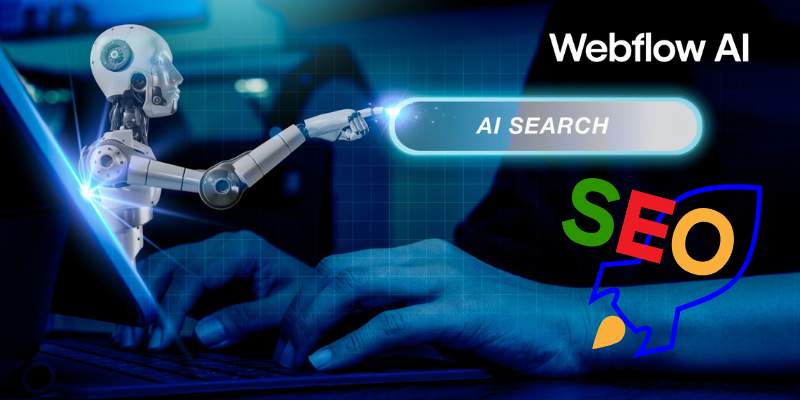Webflow has thrown its hat into the already noisy AI ring, unveiling a new platform that promises to handle everything from code generation to content creation and, yes, even SEO optimization.
On paper, it sounds like a magic wand for designers and marketers alike — but how much of this is hype, and how much is truly groundbreaking? According to a recent report on TechRadar, the company isn’t just aiming to make web design easier, it’s pushing for a complete workflow revolution.
Now, let’s be real. Every tech company these days seems to have an “AI assistant,” but what sets Webflow’s move apart is how it directly intertwines with SEO.
Instead of forcing users to bounce between tools — one for design, another for analytics, and a third for SEO tweaks — the system aims to keep everything under one roof. That could be a game-changer.
After all, with Google’s shifting algorithms and the rise of AI-generated search results, marketers are scrambling to stay visible online. An integrated approach sounds like a sigh of relief waiting to happen, though some skeptics might call it too good to be true.
But here’s where things get juicy. As companies like Gannett roll out their own AI-driven tools — such as the DeeperDive chatbot covered in Wired — we’re starting to see a new battleground form.
It’s not just about building a website anymore; it’s about owning the entire ecosystem where your audience consumes information.
And let’s not forget: if publishers are designing ways to keep readers from leaking to Google, shouldn’t small businesses be just as defensive about their digital presence?
What’s fascinating is that some early research, including a study spotlighted by Search Engine Land, suggests AI still struggles with core SEO tasks like localization and technical optimization. Webflow seems to be betting big that its AI can bridge that gap.
My gut tells me we’ll see mixed results at first. Machines can crank out technically solid metadata or schema markup, sure, but can they really capture the nuanced storytelling that keeps humans glued to the page? Color me doubtful.
There’s also a bigger philosophical question here: should SEO be fully automated? Some argue the future is more about adaptive systems powered by AI agents than static web pages, as explored in a recent piece on Search Engine Journal.
Personally, I can’t help but think automation is helpful, but it won’t kill the art of human creativity. Storytelling, humor, even those little imperfections we all have — that’s what makes people engage. Webflow’s AI might handle the skeleton, but the soul still belongs to us.
At the end of the day, Webflow is clearly positioning itself for the AI-driven internet era, one where websites need to be as fluid and adaptive as the search engines crawling them. It’s ambitious, maybe a little cocky, but certainly not boring.
The big question is whether businesses — especially the smaller ones without full-time dev teams — will trust an AI not only to write their code but also to shape their search destiny.
So, will Webflow’s AI become the all-in-one savior it promises, or just another shiny tool that looks slick in a demo but falls short in the real world? That’s the story worth watching, and honestly, I wouldn’t bet against them shaking things up.

